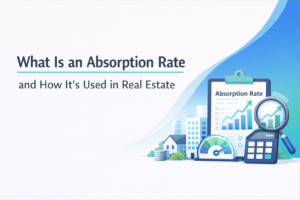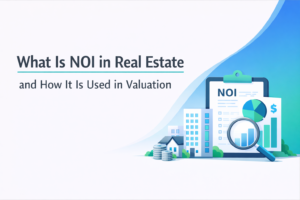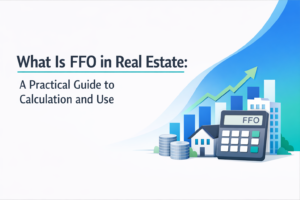
Importance of Real Estate Accounting Software
Accounting software is a deal breaker for real estate businesses. The real estate sector is a complicated web of financial management, investments, and transactions. It involves more than just purchasing and selling real estate; it also entails tracking spending, managing rental revenue, paying taxes, and keeping a clean financial record.
With specialist real estate accounting software like , you may manage your accounts more efficiently than with separate spreadsheets and ledgers.
Without a specialized accounting system, real estate agents frequently face numerous difficulties. These can include laborious manual data input, the possibility of human error, the challenge of monitoring several revenue sources, and the intricacy of tax compliance.
The Benefits of Real Estate Accounting Software
Simplified Commission Tracking & Payments
Simplified procedures guarantee precision and effectiveness when handling commissions for partners and sales teams.
Businesses can greatly cut down on the time and effort needed to compute and disburse payments by putting in place a streamlined commission tracking system, which will ultimately increase overall operational effectiveness.
Businesses can now streamline commission monitoring by utilizing pre-established commission structures and real-time sales data capture through the use of automation tools and cutting-edge technology.
For the benefit of the business and recipients, this removes human mistake and delays and offers transparent and trustworthy monitoring.
The trust and happiness of sales professionals can also be increased by using automated payment procedures that guarantee correct and timely commission disbursement.
Investing strategically in a streamlined commission tracking and payment system can boost productivity, enhance financial transparency, and forge closer ties with affiliates and sales teams.
Businesses can revolutionize their commission management procedures, boost productivity, and create the foundation for long-term growth in a cutthroat market by implementing cutting-edge technologies.
Real Estate Specific Financial Reporting
In order to give stakeholders a clear and accurate picture of the financial health of a real estate company or project, real estate-specific financial reporting is essential.
These reports frequently incorporate measures and critical performance indicators unique to the real estate sector, going beyond conventional financial statements.
By examining these reports, lenders, investors, and other stakeholders can make well-informed judgments about project funding, investment opportunities, and overall business success.
The emphasis on property-level data, such as occupancy rates, rental income, operational expenses, and property valuations, is one of the most important components of financial reporting that is special to real estate.
Stakeholders may evaluate the performance of individual properties and portfolios, spot patterns, and reduce risks with this degree of information.
Real estate-specific accounting software offers configurable reporting that caters to the particular requirements of a brokerage, whereas standard accounting systems only offer basic reporting options.
With real estate accounting software, financial reporting enables managers and brokers to examine business-specific information, including cash flow forecasts, agent performance, and property profit and loss.
Integration with MLS & Transaction Tools
In order to maximize efficiency and streamline operations, a seasoned real estate broker must integrate with the Multiple Listing Service (MLS) and transaction tools.
Real estate agents can instantly access a large database of property listings, market statistics, and demographic information by integrating easily with MLS platforms. This integration makes accurate pricing analysis, quick property searches, and smooth client contact possible.
Additionally, professionals can handle paperwork digitally by integrating with transaction tools like transaction management systems and electronic signature software, which minimizes errors and eliminates the need for manual processing.
These systems make it easier for clients, real estate brokers, and other parties to collaborate during the transaction process, which eventually results in quicker deal closings and happier customers.
All things considered, integrating MLS and transaction tools improves efficiency, guarantees adherence to industry rules, and gives a competitive advantage in the quick-paced real estate market.
MLS (Multiple Listing Service), CRM, and document management solutions are just a few of the platforms used in real estate transactions. These systems can be easily integrated with an accounting platform designed specifically for real estate, which eliminates the need for manual data entry and guarantees that important data is up-to-date.
Automated Compliance & Audit Trails
For businesses looking for quick and easy ways to guarantee regulatory compliance and keep accurate records of their activities, automated compliance and audit trails have become essential tools.
Businesses can automate the monitoring of their transactions and operations by utilizing automation technologies, proactively detecting any possible compliance issues before they become more serious. This improves overall operational integrity in addition to preventing expensive fines and penalties.
Moreover, automated audit trails offer a thorough log of all organizational actions, including a clear and thorough description of each event and transaction. Because it enables prompt and precise information retrieval during audits or investigations, this degree of visibility is essential for regulatory compliance.
Businesses can also monitor changes over time, spot irregularities, and see trends that might point to areas for development with the help of automated compliance and audit trails.
In the end, companies may reduce risks, boost productivity, and maintain the highest levels of accountability and integrity in their operations by implementing automated solutions for compliance and audit trail management.
Scalable Solutions for Growing Brokerages
It is essential for professionals in the real estate sector to comprehend the significance of scalability for expanding brokerages.
For brokerages hoping to grow their operations without sacrificing effectiveness or service quality, scalable solutions are crucial. Using cutting-edge technological platforms that automate repetitive work and streamline procedures is one scalable way to grow brokerages.
These tools have the potential to increase consumer satisfaction, decrease human error, and boost productivity.
Investing in staff and agent training and development initiatives is another scalable and successful strategy for brokerages.
Brokerages may guarantee that their team members have the skills and knowledge required to manage an increasing workload and provide clients with excellent service by offering chances for skill development and ongoing education.
As the business grows, standardizing processes and procedures can also aid in preserving quality and consistency.
Features to Look Out for in Real Estate Accounting Software
Real Estate Focus
When dealing with the intricacies of real estate, general accounting software might not be sufficient. Seek out real estate-specific software with features that concentrate on controlling expenses, managing properties, and generating rental income, among other things.
User-friendly Interface
If the software is too difficult to use, even the best software won’t maximize your business. Select a system with an easy-to-use interface that facilitates data entry, report generation, and other tasks.
Automation
In the real estate industry, time is money. You can save a lot of time and lower the chance of mistakes by using software that automates repetitive operations like data entry, invoice production, and financial reporting.
Inaccuracies and inconsistencies are common in manual data input, which can result in misreporting and financial blunders. Accuracy and consistency can be enhanced by automation.
Furthermore, real-time updates and notifications for particular financial metrics or anomalous transactions are frequently included in automated software, enabling prompt action and problem-solving.
Forecasting
Recording previous transactions is not the only function of good real estate accounting software. In order to assist you in making wise decisions and expanding your company, it should also project future cash flow, profits, and expenses.
Integration
Payment gateways, property management software, CRM, and other business systems should all work well with your accounting software.
Integration with document management solutions is beneficial when managing the documentation for selling a house without a realtor. Connected software guarantees smooth data flow and lessens the need for manual data transfer.
Reporting & Analytics
In-depth analyses and reports can provide insightful information about your financial performance. Seek out software that offers a variety of reports, ranging from summaries of revenue and expenses to in-depth assessments.
Tax Guidance
Whether you’re a property manager, wholesaler, or flipper, navigating company taxes, property taxes, and other tax requirements can be a pain. For many real estate professionals, the intricate details of different deductions, frequent changes to legislation, and complicated tax rules can be very confusing.
Real estate accounting software that can provide you with advice, keep you informed about new rules and automatically calculate these taxes is, therefore, a vital tool.
Security
Because your financial information is critical, it must be kept safe. Seek out software with strong security features, such as safe user access controls and data encryption.
Customization
Since every real estate company is different, your accounting program should be able to adapt to your particular requirements. Flexibility is essential when it comes to creating customized reminders or altering reports.
Cloud-based Software
Among the many advantages of cloud-based software are automated updates, lower IT expenses, and remote access to your data.
You won’t ever have to be concerned about losing crucial financial files because of system breakdowns or other unanticipated events because the majority of cloud-based software solutions provide data backup services.
The supplier often manages software updates and enhancements remotely without interfering with your use, guaranteeing that you’re always running the most recent, secure, and optimized version.
The Future of Real Estate Accounting Software
Technology is the key to the future of real estate accounting. The software and tools created to assist the industry will also change as they do.
Adopting real estate accounting software is an investment in your company’s future rather than merely an upgrade to your financial management system.
A full-service platform developed to simplify financial management and real estate transactions is one instrument worth looking into.
A variety of features designed to meet the requirements of real estate professionals, including landlords and property investors, are available to you.Having the appropriate tools might be crucial while navigating the real estate market.
There is a plethora of technology available to make your life easier and your business more profitable, whether it be software for investors, home flipping solutions, or tools for selling a house without a realtor.
Conclusion
Real estate accounting software is revolutionary for brokerages looking to increase transparency, maintain compliance, and streamline operations.
By selecting an industry-specific platform, brokers can maximize commission management, increase reporting accuracy, improve compliance, integrate necessary technologies, and prepare for expansion.
Reach out to us and discuss the best accounting software for real estate agents.
Propertese is your partner in building a pathway toward success.
Table of Contents
Stay Updated
Subscribe to get the latest news, industry trends, blog posts, and updates...




